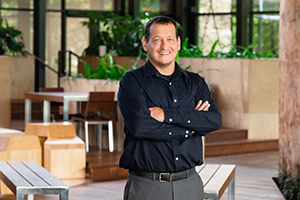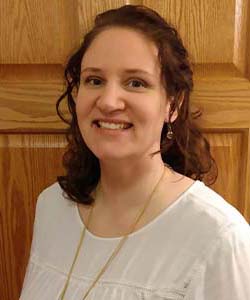Students get a boost from American Indian education program
Jason Dropik is a university administrator doing work on a faculty superintendent certification.
Holly Lebeck, a junior, is earning an instruction degree in social scientific tests, getting ready to perform with fourth- by means of eighth-quality students.
Elizabeth Hennessey, also a junior, is pursuing a degree in English schooling, with a concentration on middle school.
All a few of these UWM College of Education and learning pupils are benefiting from funding and assistance by way of an Electa Quinney Institute plan built to prepare American Indian teachers and directors. The program, Leaders from the Great Land: Electa Quinney Indian Instruction Advancement, started much more than a dozen many years back with funding from the U.S. Section of Education’s Bureau of Indian Instruction.
At present, a fourth spherical of funding is supporting three directors and 5 foreseeable future instructors, which include two from UW-Remarkable, and a sixth is about to start. (In the most current grant period of time, UWM been given two grants – $1,044,850 for getting ready lecturers and $358,533 for getting ready administrators.)

Dropik, who is head of college at the Indian Local community Faculty in Franklin and a member of the Bad River Band of Lake Exceptional Ojibwe, claimed he felt it was significant to carry on to increase his techniques as an administrator and chief.
“There are not plenty of American Indian principals and instruction leaders all over the region, so currently being in a position to continue on my schooling to abide by that path to present folks what is achievable was essential to me,” he stated.
Dropik earned his undergraduate diploma from UWM’s College of Education, with guidance from the American Indian education and learning grant.
Lebeck said she felt she was destined to come to be a trainer for American Indian learners. She savored enjoying school with her young brothers but didn’t know much about her heritage developing up.

That improved when she began undertaking genealogy exploration with her mom right after her father, who was Potawatomi, “walked on.” (She explains American Indians use this time period for people who have handed on, reflecting the belief that death is not remaining and “our ancestors go on to reside and influence us.”) She started out digging into her spouse and children heritage on her dad’s side. “I seriously started to come to feel this connection with my ancestors. I felt like they had been telling me, ‘Don’t fail to remember me.’ I experience like I was led below.”
Hennessey, a member of the Stockbridge Munsee tribe, generally wanted to be a instructor and was encouraged by some others. “It’s really a great deal the only issue I at any time regarded as accomplishing.”
1 motive she chose to focus in American Indian instruction was to master far more about her personal background and aid other American Indian college students discover additional about their shared heritage.
“I required to be open up to assisting other students, specifically if they are in my scenario in which they may possibly not appear indigenous or feel confident in their nativeness,” Hennessey reported.
Five-year qualified growth awards
The plan delivers five-yr skilled progress awards, with a doable just one-year extension. It is created to help up to three several years of instruction and two a long time of induction companies to assistance pupils receive schooling licenses and work placements, as very well as retain American Indian educators in the field. College students who get the funding are expected to get the job done in American Indian educational facilities or in districts with a substantial proportion of American Indian students.
The institute’s namesake, Electa Quinney, is acknowledged as Wisconsin’s initially community college teacher. A member of the Stockbridge-Mohican tribe, she taught American Indian and white young children in a just one-space log university that opened in 1828.
The guidance is crucial to the learners in the plan.
“I was grateful for the option,” Dropik reported. With function and a relatives – he and his spouse have three small children, ages 12-20 – there had been limitations to continuing his schooling. “Without that, I could have not been ready to choose on that learning and activities that were section of my journey.”
Software presents protection
Lebeck, who has a few small children, explained the software gives security. “The funds is supporting our household be able to not pressure about how I will keep on studying,” Lebeck mentioned. “It presents us that sense of protection.
“Electa Quinney is really supportive of my route,” she extra. “Each student’s path and every single student’s significant is distinct. The staff members at the institute usually say, ‘What is your route and what can we do to support you,’ somewhat than declaring ‘here’s what we want you to do.’”
“It was truly significant, particularly throughout COVID,” Hennessey suggests of the assistance she gained when she found online courses demanding. “It really lifted a substantial burden off of me. Even if I struggled, they built me not scared to battle, which is genuinely, genuinely good.”
Sharing cultural background
Becoming able to share their cultural track record is vital to the college students due to the fact that was one thing they did not constantly have when they had been in college.
“When I was developing up, I felt it was extremely a lot not a thing you talked about,” Hennessey said. “My family members did not want men and women to talk to me inquiries I couldn’t remedy.”
Dropik remembers battling with his id when he started high faculty. “I seemed distinct from others I grew up close to. My ninth-grade year in large university I did not have instructors or administrators who could aid me with that, so I struggled academically.”
Lebeck, who is finding out the Potawatomi and Ojibwe languages at UWM, is also sharing her heritage. She has reconnected with her father’s relatives, who reside on a reservation in Oklahoma. Her kids transferred to the Indian Neighborhood Faculty and now acquire part in powwows and study classic crafts like moccasin producing and designing ribbon skirts. “We do a prayer ceremony in the morning. It’s a great way to be all set for the day.”
Dropik’s son, who was valedictorian of his eighth-quality course at the Indian Group School, has experienced a various experience than his father. “He was able to take language courses I did not have when I was developing up,” Dropik reported. “He’s a great case in point of what’s doable when you have buildings and devices and support and an comprehending of who you are.”
